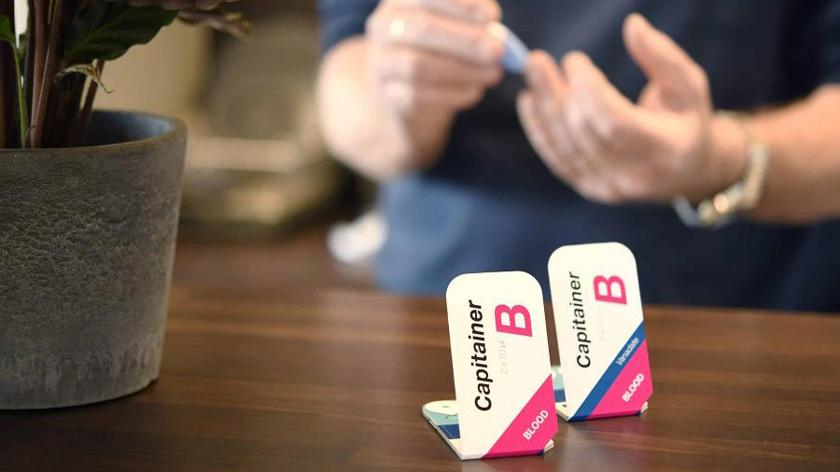AstraZeneca partners Capitainer on biomarker project

Swedish medtech start-up Capitainer has started working with AstraZeneca on a project to use a device for sampling cell-free blood in clinical trial programmes.
Stockholm-based Capitainer said the collaboration will try to develop biomarkers for use in drug development projects using a device that could be used to take samples in patients' own homes, tying into the shift towards greater use of decentralised trial (DCT) approaches by the pharma industry.
The company already markets a range of dried blood spot (DBS) microsampling devices, including Capitainer B and Capitainer B 50 products for collecting precise blood volumes and Capitainer B Vanadate for rapid blood alcohol testing without the need for a regular blood sample.
The new device – called Capitainer CF – is a self-sampling product that automatically separates cells from whole blood from a finger stick, transferring the cel-free material to a paper disc, where it dries. The sample card can be sent with regular mail to laboratories without needing refrigerated transports or special packaging.
AZ associate principal scientist Tasso Miliotis, based in the company’s R&D unit in Gothenburg, said the use of remote quantitative microsampling methods could "transform the way clinical research is conducted in the pharmaceutical industry."
It has many benefits, not least doing away with the need for patients to visit a clinical investigation site, he added.
"Remote microsampling in patients’ homes will reduce the patient burden and permit the inclusion of underserved populations to improve patient diversity. Home sampling will also enable more frequent data collection that will improve drug development decisions."
Capitainer has also been working on the use of DBS testing as a tool to measure the concentration of a drug in an individual's bloodstream at set time intervals, for example, for patient monitoring purposes, as well as developing self-sampling devices for urine.
Last year, a study found that the use of its DBS technology to monitor phenylalanine in patients with phenylketonuria (PKU) was superior to standard patient monitoring methods based on conventional DBS cards.
Along with clinical biomarkers and therapeutic drug monitoring, the technology has applications in genomics, drug development, drug abuse and doping testing, and R&D and clinical studies.
"Capitainer CF allows for remote sampling of analytes that require plasma/serum-like fluids," said Anna Ohlander, R&D manager at Capitainer.
"Our new technology is now fully developed, and production is initiated," she added. We are happy to have AstraZeneca as one of our first partners to set up methods for our new product that will soon be announced to the market."













